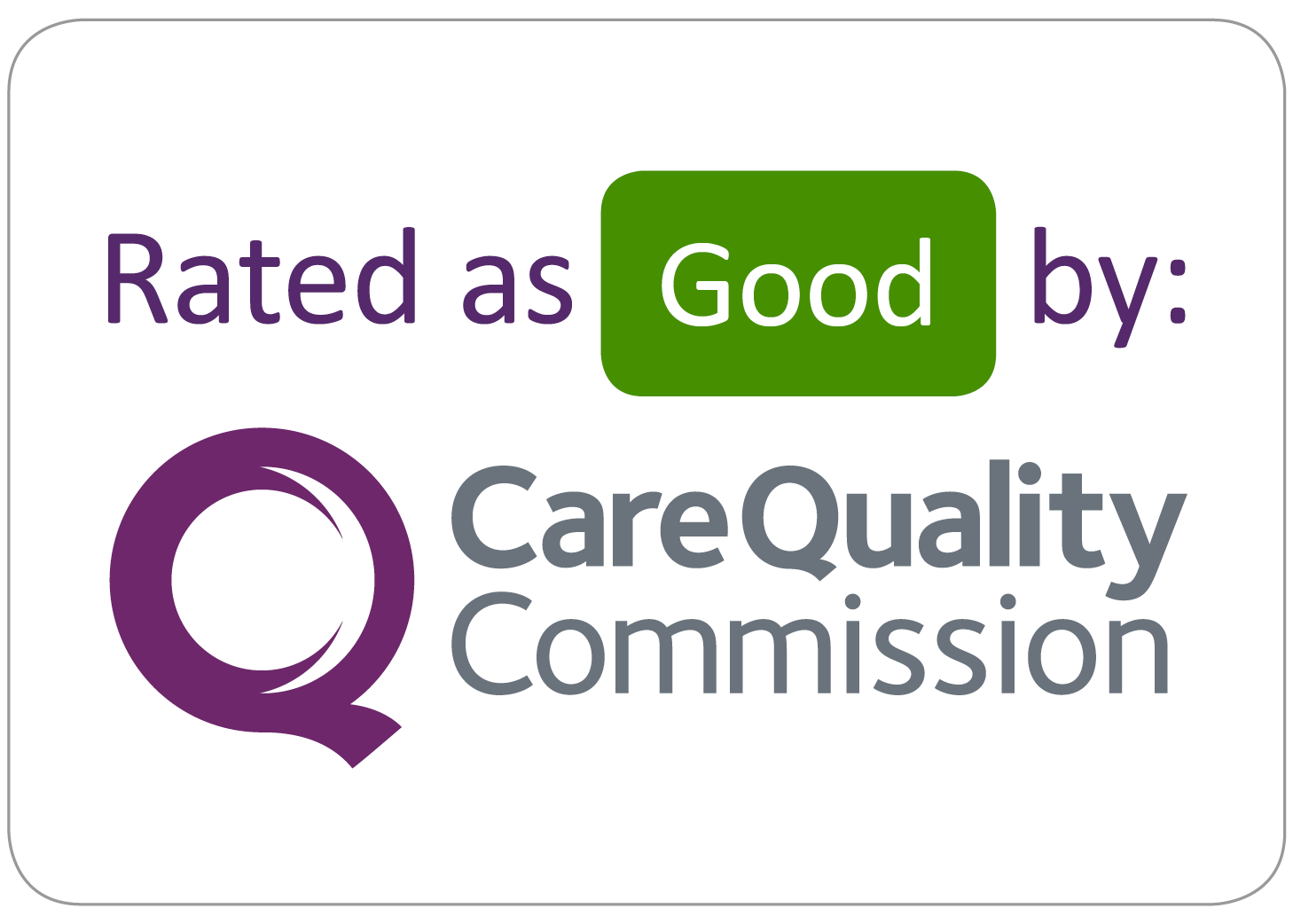Frequently Asked Questions
What should I do if I become ill or have an infection while on my rheumatology medication?
If you develop an illness or infection, it’s important to contact your healthcare provider immediately. Some rheumatology medications can affect your immune system, making it harder for your body to fight infections. If you are on immunosuppressants please suspend the treatment and contact your GP so they can review your symptoms and prescribe medication such as antibiotics or other medications to help you recover if needed. Once you recover and feel back to normal you can re-start your immunosuppressants at the same dose and frequency as before. If you can’t get through to your GP you can contact 111 for advice or attend A&E.
- Mild cold or cough: Contact your GP if symptoms persist or worsen.
- Fever or flu-like symptoms: Seek medical advice immediately, especially if you are taking immune-suppressing medications like Methotrexate, biologics or corticosteroids (such as prednisolone).
- Signs of infection (redness, swelling, warmth, pain): Seek immediate medical attention, particularly if you’re on immunosuppressive therapy.
What do I do if I miss a dose of my medication?
- For daily medications (eg Steroids, Upadacitinib, Filgotinib, Baricitinib, Tofacitinib): Take the missed dose as soon as you remember, unless it’s almost time for your next dose. In that case, skip the missed dose and resume your regular schedule. Do not take two doses at once.
- For other frequencies such as weekly, fortnightly, monthly and others (eg biologics): If you realise you’ve missed a dose you can use your injection as soon as you remember and use this new date to calculate when your next dose is due. Always consult your doctor or pharmacist if you're unsure.
What should I do if my injection pen is faulty or damaged?
If you notice that your injection pen is faulty or damaged, follow these steps:
- Do not use the pen if it appears broken, has missing parts, or does not seem to work properly.
- Check the expiration date on the pen. If it’s expired, do not use it and contact the Homecare company to arrange collection and disposal and replacement of treatment.
- If you think you have not received a full dose due to a faulty pen, please do not use a second device. This may lead to duplicate doses and consequently side effects. Since there is no way to confirm how much drug got into your system the advice is to wait until the next dose is due to use another device.
For safety, always follow the specific instructions provided by your manufacturer and healthcare team.
What should I do if I experience side effects from my medication?
If you experience side effects from your medication, please suspend your treatment and ring 01484 355370 and ask for a Rheumatology Nurse Advice Line appointment. A nurse will contact you at that appointment to discuss these concerns. Some common side effects can include nausea, fatigue, headaches or stomach upset. However, if you experience any serious reactions like swelling of the face or throat, shortness of breath or signs of an allergic reaction, seek urgent medical help or go to the nearest A&E.
Can I receive vaccines while on rheumatology medications?
Vaccination is important for your health, especially whilst managing autoimmune conditions. Some medications, particularly immunosuppressive treatments, may affect how well vaccines work or increase the risk of infections.
Non-live vaccines (such as flu, COVID-19, pneumonia) – You can have these vaccines safely. However, with COVID-19 vaccines there is not enough data to prove if the effectiveness is decreased with some immunosuppressants. Therefore, the advice is:
- Rituximab infusions: You should have your vaccine first and your infusion after 4 weeks of COVID-19 vaccine. If you have already received your infusion, you should have your COVID-19 vaccine 8 weeks after the last infusion.
- Methotrexate: Suspend your Methotrexate 2 weeks after the vaccine ONLY if your rheumatological condition is stable and you are not flaring. If you are flaring or struggling do not suspend your treatment and continue as normal after vaccine.
- Infliximab: Have your COVID-19 vaccine 4 weeks after your last infusion.
- Ustekinumab: Have your COVID-19 vaccine 5 weeks after your last infusion.
Live-vaccines (such as Yellow Fever, Measles, Rubella) – Do not have any live vaccines while you are on any immunosuppressants.
Shingles Vaccine – You are eligible for this if you are aged 50 and over and on immunosuppressant therapy. There are live and non-live (Shingrix) Shingles vaccines. Please do not have any live Shingles vaccine while on immunosuppressants.
If you are still not sure if you can have your vaccine you can discuss this with your GP or book a Rheumatology Nurse Advice Line appointment through the number 01484 355370.
What should I do if I am planning to travel while on my treatment?
Before travelling, it’s important to plan ahead to ensure you have enough medication and understand any special considerations related to your condition and treatment.
- Contact your Rheumatology team a few weeks in advance through an Advice Line appointment to discuss any adjustments to your medication while you’re away. Some medications are not recommended to travel due to changes in stability outside fridge temperature.
- Check with your GP about travel vaccinations and precautions for your specific treatment plan.
- Carry a letter if necessary, explaining your medical condition and medications, particularly for air travel or international trips. If your medication is delivered by a Homecare company they can supply this for you but if not you can request this from your Rheumatology team.
- Monitor your health while travelling and if you experience any problems or symptoms, seek medical attention immediately.
How do I dispose of old or expired medications properly?
Do not dispose of medications in the household rubbish or flush them down the toilet. Instead:
- Return unused or expired medications to your pharmacy for safe disposal.
- If your medication is delivered to you by a Homecare company, your pharmacy won’t be able to dispose of this. You will need to contact the Homecare provider to organise collection of the unused medication.
If you're unsure, ask your pharmacist for guidance on safe disposal.
How can I reach my rheumatology team if I have a question or concern?
You can reach your rheumatology team by:
- Booking a Rheumatology Nurse Advice Line appointment through the number 01484 355370.
- Using the Trust website where you can request blood test forms, medication or action a PIFU request. Please note if you have not discussed PIFU with the team you have not been added to this service and therefore this will not be actioned.
- For after-hours concerns, if it's an emergency, please visit the nearest A&E department.
What is the best way to manage pain or flare-ups related to my condition?
Managing pain or flare-ups effectively may require a combination of strategies:
- Medication adjustments: Your GP may adjust your pain management or inflammation-reducing medications, such as nonsteroidal anti-inflammatory drugs (NSAIDs) such as Ibuprofen or Naproxen, in combination with Paracetamol or other pain relief if appropriate.
- Physical therapy or exercises: Your doctor may recommend specific exercises or physical therapy to maintain mobility and reduce stiffness. Versus Arthritis website offers advice on specific exercises you can do to manage your condition.
- Lifestyle modifications: A healthy diet, regular exercise, stress management and adequate rest can help reduce flare-ups.
- Alternative therapies: Acupuncture, massage or other complementary treatments may also be beneficial for some people - discuss these options with your healthcare provider.
How often do I need to have my blood test done?
When you initiate treatment, you will be informed by the Rheumatology clinician on how often you need to have a blood test done. This depends on which treatment you are started on. You may need more frequent blood tests in the first 6 months of treatment depending on the drug you are taking and you will be given the blood forms by the team. After the initial blood test, you should then be able to follow this routine (unless you are told different by a member of the Rheumatology team):
- Hydroxychloroquine – no blood test monitoring required unless you have diabetes, hypertension or any condition that may affect your kidneys. If so, you need a blood test once a year. If you are over 70 years old you will be required to have a yearly blood test even if you don’t have any other condition.
- Methotrexate – oral or sub-cutaneous. Blood test every 3 months.
- Sulfasalazine – blood test every 3 months. After a year of treatment, you may be told that monitoring is no longer required.
- Leflunomide – blood test every 3 months.
- Tocilizumab and Sarilumab – blood test every 3 months.
- Biologics – such as but not limited to Adalimumab, Etanercept, Certolozimab, Golimumab, Infliximab, Abatacept, Filgotinib, Upadacitinib, Baricitinib, Tofacitinib, Bimekizumab, Secukinumab, Ixekizumab, Guselkumab, Ustekinumab - blood test every 6 months.
Pregnancy and DMARDs (Disease Modifying Anti-Rheumatic Drugs)
If you are intending on trying to conceive, Sulfasalazine and Hydroxychloroquine are compatible throughout conception, pregnancy and breast feeding. However, if you are taking any other therapies you need to discuss this with your nurse specialist/consultant before attempting to conceive.
If you have questions you can discuss these with a nurse by booking on the Rheumatology Nurse Advice Line on 01484 355370.

















